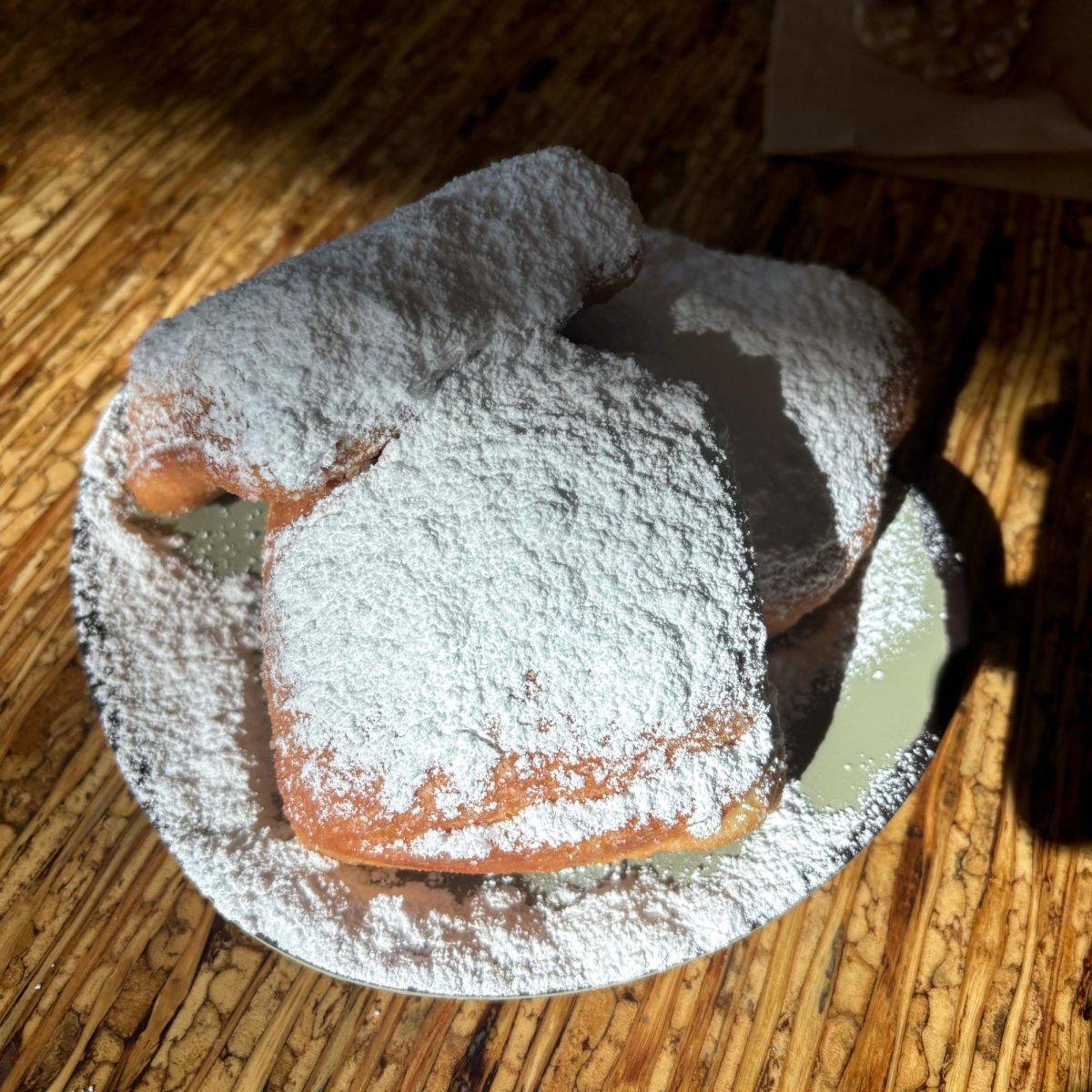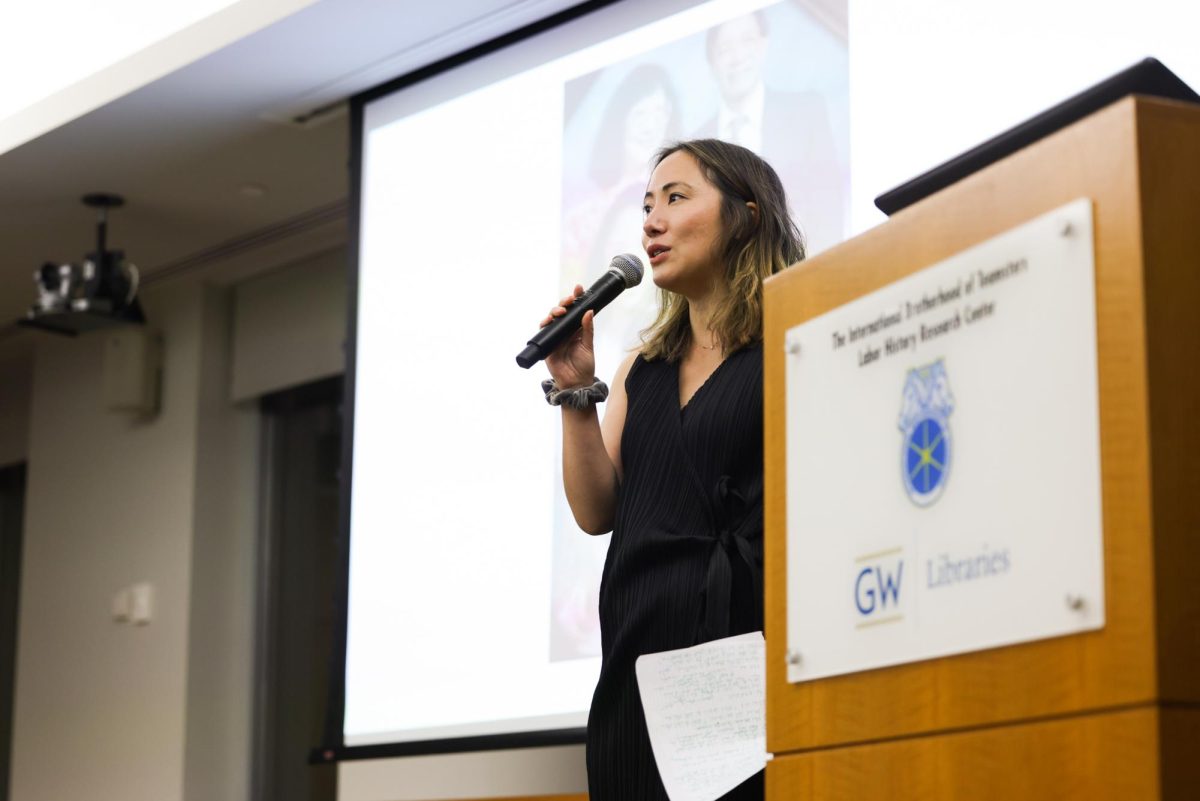When President Barack Obama went book shopping last Saturday, he skipped the disappearing megastores to instead participate in a widespread movement to shop local, favoring a literary pillar of Dupont Cirlce.
“Small Business Saturday,” sponsored and developed by American Express, encourages post-Black Friday holiday shoppers to buy local. Obama took up the call by bringing his daughters to Kramerbooks & Afterwords Café.
Establishing itself as a Washington institution, the restaurant café-meets-bookstore claims to be the first of its kind in the country to feature cappuccino, espresso, a full bar and food. The iconic D.C. bookstore has stood as a staple of Dupont Circle, attracting natives and tourists for nearly 36 years, but it is just one of the locally owned and long-standing bookstores in the District.
Capitol Hill Books
Jennifer Ellingston, a long-retired employee of the Library of Congress, has been working at Capitol Hill Books for over 15 years. After wandering in to buy a present for her nephew in 1995, she struck up a conversation with the store’s new owner and soon began volunteering once a week. Thousands of book sales later, she is now getting paid for helping visitors uncover a good read.
Sifting through the estimated 60,000 books held inside the aging Capitol Hill row house can be tricky. Every inch of space is carefully utilized, as secondhand books are stacked from floor to ceiling, creating a “Matilda”-like dream world of well-loved books.
After the first owner passed away, the fate of the local store was unknown. The current owner, retired Navy veteran Jim Toole, couldn’t stand the thought of his neighborhood losing a bookstore and bought the business in 1995.
Without any prior experience as a bibliophile or storeowner, Toole took the reigns.
Toole and Ellingston have watched the rise and fall of bookstore giants like Borders and Barnes & Noble. The former, once with multiple locations, is now completely absent from D.C., and the latter is closing its Georgetown location in January.
Ellingston credits their location, directly across from Eastern Market, for steadily sustaining the business. She personally finds it biologically impossible to think of shopping at a colossal corporate store for any good. “I’m genetically programmed to buy locally,” Ellingston said. “Number one I support small business, number two I support local business.”
Bridge Street Books
At the gateway to Georgetown, Philip Levy, has been running Bridge Street Books for more than 30 years.
By the late 1970s, Levy, then in his early 30s, says he wasn’t going anywhere too fast.
After working various gigs, ranging from a stint with a radical institute to time clocked for Ralph Nader, and later as a messenger and manager at movie theater, he settled on becoming a scholar.
On the way back from a family trip to England, Levy’s brother asked him if he would be interested in opening up a bookstore and made him a deal: if Levy could learn the business, his brother would help him get started.
“I thought, well, if I am going to get in to business, there is nothing I would rather do than sell books,” Levy said.
To learn the book business and hone his customer service skills, Levy got a job making $3.25 an hour at a bookstore in downtown D.C.
“I learned how to act. Even if I didn’t know anything, I learned how to act,” Levy said.
Next to tackle was the question of what to sell.
Levy got the “backlist” – a listing of recommended books for stores to stock from the American Booksellers Association.
“I looked at the list and said, ‘This is not the kind of bookstore I’m going to have. This is like any bookstore. I don’t want to have any bookstore, I want to have a good bookstore,’ ” Levy said.
Instead, for nearly a week, Levy spend five or six hours wandering the shelves of now-closed Olsson’s Books & Records on Wisconsin Avenue in Georgetown, compiling a list of every title and author of every book he wanted to sell.
“My confusion was if they had a lot of copies of a book, does that mean that’s really important and I’ve got to have it, or does that mean it’s not selling? I had to figure that one out,” Levy said.
In 1980, Levy moved into the store’s current location. His first way to track inventory was a complex index card system with carefully handwritten information stowed away in the back of each book.
From its perch at the edge of Georgetown, Bridge Street Books has withstood waves of mild competition. Levy jokes he is patiently waiting for all other bookstores to exit.
“When we first opened I had this fantasy. I wanted to be the last bookstore left in Washington,” Levy said with a laugh.
Inspired by a local jewelry store that donated its mahogany shelves to the Smithsonian when it closed, Levy hopes his 30-year-old hand crafted bookshelves will one day meet the same end.
“I made a promise when I first started that I would only sell books,” he said. “I’d be a very strange bookstore.”





